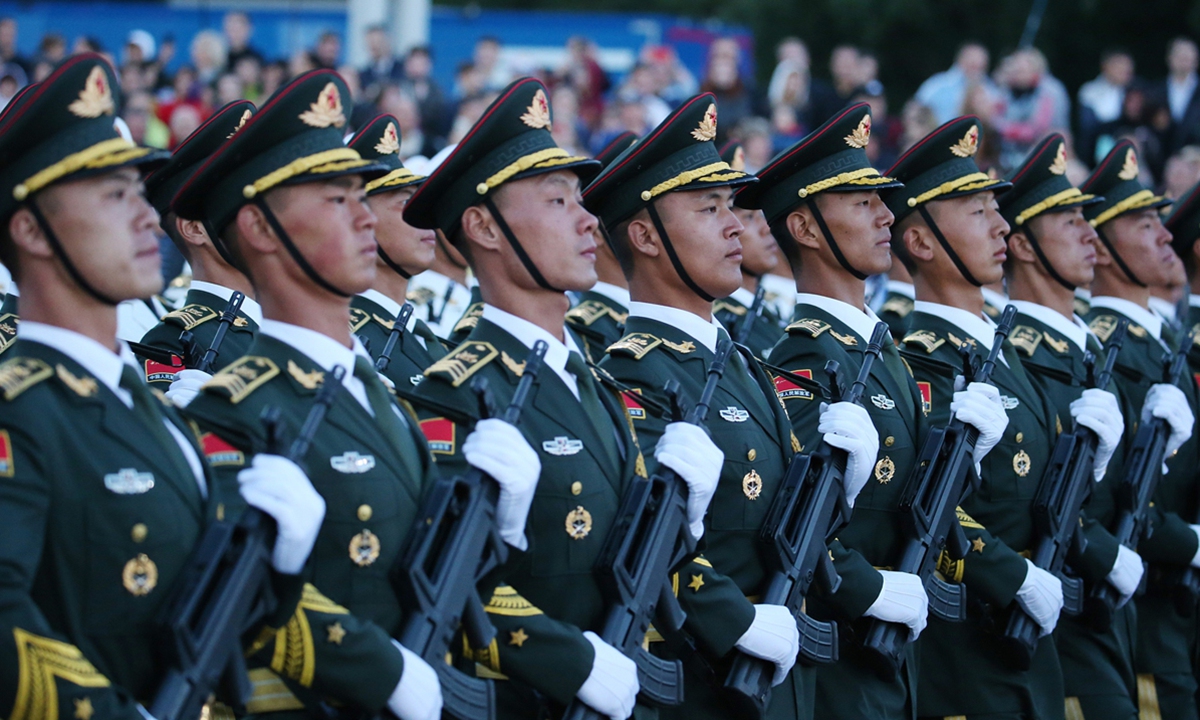New national defense law to protect China’s development interests
By Song Zhongping Source: Global Times Published: 2020/12/28 22:44:14

PLA Photo:VCG
China's newly amended national defense law will come into effect on January 1, 2021. It was approved at a session of the Standing Committee of the National People's Congress, China's top legislature, on Saturday, according to the Xinhua News Agency.
There are several reasons why the national defense law was amended at this time. After the fresh round of military reforms, the capability of the Chinese People's Liberation Army (PLA) has been remarkably improved. It is necessary for the PLA to undertake more work to defend national security, sovereignty and development interests. Furthermore, the world is undergoing profound changes unseen in a century. In this respect, the national defense law should adjust according to the new international situation and China's strategic changes.
This amendment has drawn global attention, as China's military development and strategies always arouse Western interest, particularly their media outlets. China always insists on a defensive policy for national security. As China gains more military might, the West is worried whether Beijing will change strategies. Additionally, following the logic that "a strong country is bound to seek hegemony," Western countries led by the US are anxious whether China will repeat their path. This is hardly the case.
One prominent feature to an amendment of the national defense law notes "development interests." This has grabbed Western media's attention. Especially it said when China's sovereignty, unification, territorial integrity, security and development interests are threatened then it shall conduct a national or partial mobilization in accordance with the Constitution and laws.
Washington is ushering in a new president, but it will not fundamentally affect the US government's overall strategy over China. Washington will still seek to undermine China's "development interests."
Overseas markets, to some extent, have benefited China's economic development. In addition, China is an export-oriented economy, constantly making various investments overseas. These interests have become China's core interests.
If China wants to deepen its development, it must strongly safeguard its own development interests. Ergo, China's inclusion of the wording "development interests" in the national defense law is also a manifestation of it advancing with the times.
Media outlets from the island of Taiwan have different interpretations of "development interests." When the Chinese mainland released the draft amendment in October, they misinterpreted it as an excuse to wage a war, arguing that the Chinese mainland could "attack Taiwan at any time."
In fact, the Chinese mainland does not need to care about the comments of the Taiwan media outlets or what Taiwan secessionists think. Both the national defense law and the potential national unification law are designed to safeguard China's national sovereignty, security and development interests. This is bound to involve the Taiwan question. If the Taiwan question remains unresolved and the island continues to be manipulated by the West, it will impair China's development interests and thus lead the two sides of across the Straits into huge internal friction. This will greatly hamper the development of Chinese mainland as a whole. Therefore, solving the Taiwan question is key to safeguarding national interests.
The foreign media are also paying more attention to the statement that "China pursues a national defense policy that is defensive in nature," which is added in Article 6. Such a statement is completely justified. It means that China will not take the initiative to invade any other country, nor will it engage in expansion. China is merely safeguarding its sovereignty and territory. It will not infringe upon an inch of territory that belongs to any other country.
However, when it comes to development interests and safeguarding China's territorial interests, we have to do something to make our military stronger. This is not only about protecting our territorial and maritime interests, but also our interests overseas.
The author is a Chinese military expert and commentator. opinion@globaltimes.com.cn
Posted in: VIEWPOINT